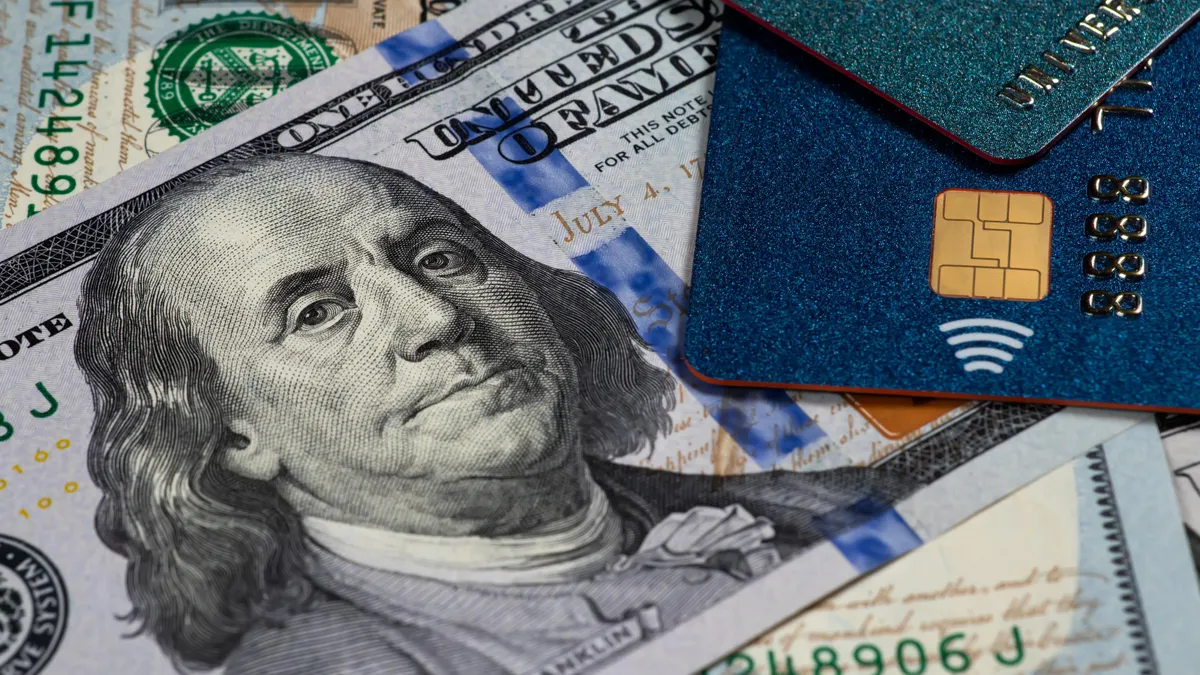Dive Brief:
- Credit card balances for the first quarter fell by $29 billion from the fourth quarter to $1.18 trillion, according to a quarterly report from The Federal Reserve Bank of New York’s Center for Microeconomic Data.
- Aggregate first-quarter credit card limits ticked up 1.5% — about $77 billion — from the fourth quarter. Other consumer debt, such as retail cards and consumer loans, declined by $12 billion compared to the previous quarter, the New York Fed said.
- The proportion of credit card holders who were 90 days or more delinquent increased slightly to 7.04% in the first quarter, compared to 6.86% in the same period last year, though it was down from 7.18% for the fourth quarter, according to the report.
Dive Insight:
Last month, the Federal Reserve Bank of Philadelphia found that the share of credit card accounts at large banks that were 90 days or more past due had reached a 12-year peak in Q4 2024. The Philadelphia Fed pointed to the elevated delinquency rates and consumers making minimum payments as a sign of “greater consumer stress,” researchers noted in the report.
Businesses, consumers and policymakers are all bracing for the potential impact of the Trump administration’s deviating tariff policies, which have targeted various U.S. trading partners with differing duties.
The uncertainty led to a 0.3% shrinkage of the U.S. economy in the first quarter amid a souring of consumer sentiment this year.
The New York Fed report also noted the return of student loan delinquencies to credit reports following a 12-month “on-ramp” period preventing “negative remarks of missed payments from being reported to credit bureaus,” the Fed said. That period expired in October 2024 and delinquencies began appearing on credit reports this year , the NY Fed said.
In the first quarter, 7.74% of aggregate student debt was reported 90 days or more delinquent, compared to less than 1% reported in the prior quarter, the Fed said.
That transition resulted “in a large jump in seriously delinquent borrowers,” Daniel Mangrum, a research economist at the New York Fed, said in the report.
“Transition rates into serious delinquency have leveled off for credit card and auto loans over the past year,” Daniel Mangrum, a research economist at the New York Fed, said in a statement regarding its quarterly report. “However, the first batch of past due student loans were reported in the first quarter of 2025, resulting in a large jump in seriously delinquent borrowers.”













